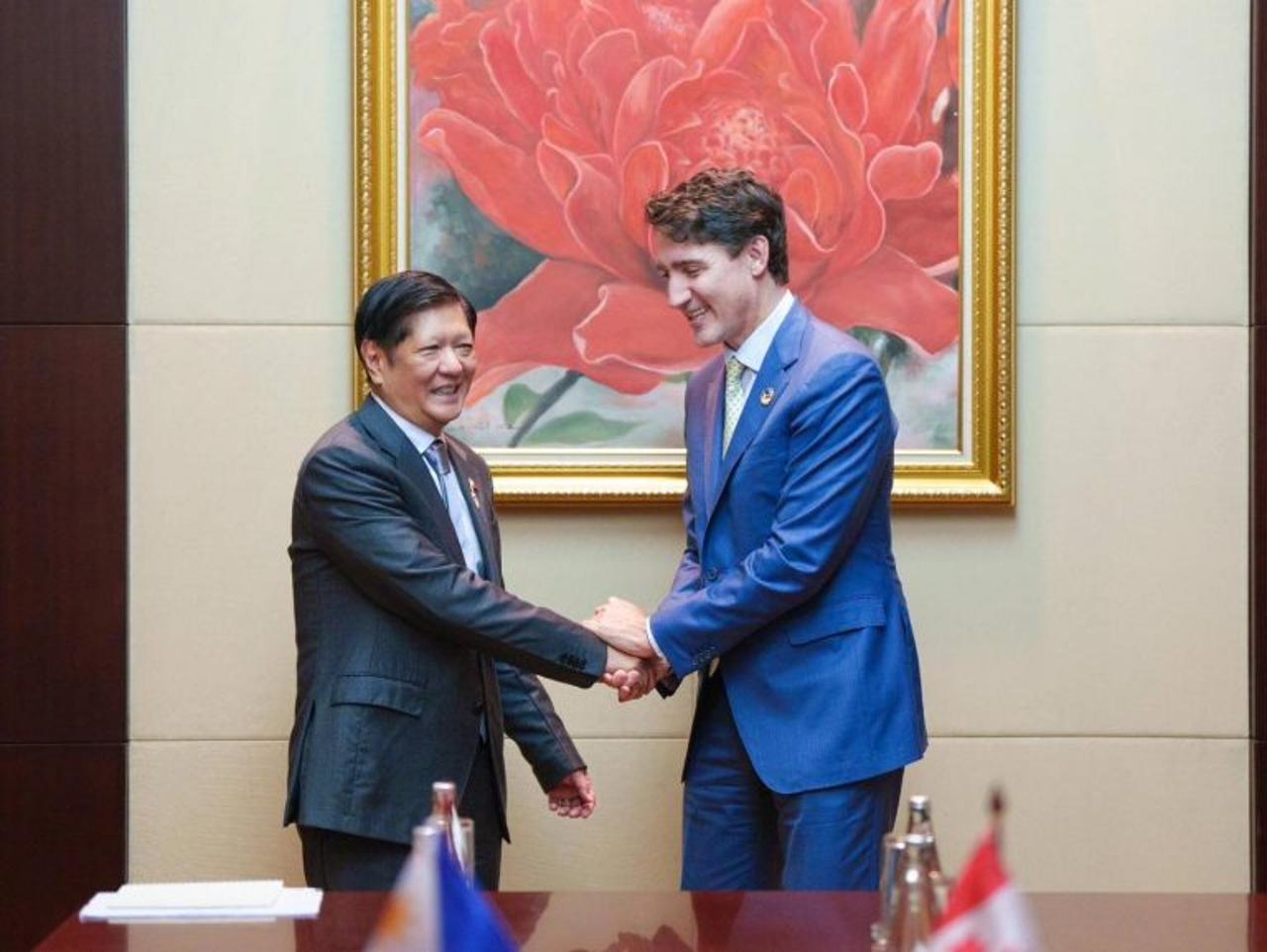President Ferdinand “Bongbong” Marcos Jr. sought the support of Canadian Prime Minister Justin Trudeau for the Philippines’ stance in the Group of Seven (G7), with particular focus on the South China Sea dispute involving China. The bilateral meeting took place on the sidelines of the 44th and 45th ASEAN Summits in Vientiane, Laos, where regional security and cooperation dominated discussions.

In his meeting with Trudeau on October 10, 2204,, President Marcos expressed his hopes for Canada’s continued endorsement of the Philippines’ position when Trudeau assumes the G7 presidency in 2025. Marcos emphasized the importance of maintaining a rules-based international order, especially in the Indo-Pacific region, where the South China Sea has become a flashpoint for tensions with China.
“We look forward to your continuing support and endorsement of our position in the G7 when you take the chair of G7,” Marcos told Trudeau during the meeting. The Philippine president also thanked Canada for its ongoing efforts to uphold the rule of law, specifically in relation to the South China Sea, where China has been expanding its claims through military build-ups and coercive activities.
South China Sea at the Heart of Discussions
The South China Sea, which is a vital trade route and resource-rich area, has been a long-standing issue between China and other Southeast Asian nations, including the Philippines. Despite the 2016 international arbitration ruling in favor of the Philippines, China continues to assert its territorial claims, often leading to confrontations in disputed waters.
Marcos highlighted Canada’s role in supporting regional security, particularly through capacity-building initiatives and diplomatic presence in the Indo-Pacific. He noted that Canada’s contributions go beyond verbal commitments, actively reinforcing its support through concrete actions that help maintain peace in the South China Sea.
Trudeau, in response, reassured Marcos of Canada’s continued cooperation with the Philippines. He noted that the two nations share strong ties, which have only grown deeper over time.
Canada’s Commitment to Regional Stability
Prime Minister Trudeau echoed Marcos’ sentiments about the importance of regional security, pointing to Canada’s involvement in ensuring stability in areas such as fishing rights and military cooperation. He also emphasized Canada’s commitment to bolstering economic ties and enhancing bilateral trade through potential free trade agreements.

“We’ve been working together on regional security and safety, including military concerns,” Trudeau remarked, adding that Canada will continue to support the Philippines in addressing both economic and security challenges.
Trudeau further acknowledged the importance of creating more opportunities for cooperation between the two countries, not only in terms of security but also in economic growth. He expressed his eagerness to strengthen partnerships between Canada and the Philippines, especially with the G7 summit approaching.
Philippines-Canada Relations at a New High
The bilateral meeting marks a significant moment in the relations between the Philippines and Canada, which have been elevated to a Comprehensive Partnership. President Marcos described the relationship as stronger than ever, noting the long-standing people-to-people ties that have laid the foundation for deeper diplomatic and economic cooperation.
The G7, comprising the world’s most advanced economies, will play a key role in addressing global issues, including the ongoing tensions in the South China Sea. As Canada takes on the G7 presidency in 2025, Trudeau’s support is seen as vital for the Philippines in its quest to safeguard its territorial rights against China’s aggressive actions.
In recent years, the G7 has repeatedly voiced concerns over China’s militarization of the South China Sea and its impact on the rules-based international order. The group has also supported the 2016 arbitration ruling, which invalidated China’s expansive claims. This continued backing from global powers is seen as essential for the Philippines as it navigates the complex geopolitical landscape of the Indo-Pacific.
Final Thoughts
With Canada’s endorsement, President Marcos is optimistic about gaining stronger backing from the G7 in its ongoing territorial disputes with China. As Trudeau prepares to lead the G7, the Philippines’ position on the South China Sea will remain a focal point in shaping the region’s future. Both leaders reaffirmed their commitment to further enhancing their countries’ relations, underpinned by shared values of peace, security, and economic development.
This meeting highlights the Philippines’ strategic partnerships in addressing key regional issues, positioning the country to assert its sovereignty and maintain regional stability amidst growing challenges in the South China Sea.
